#is he just an intentionally oblique mystery
Explore tagged Tumblr posts
Text
They just. Never explained Hooty’s deal, huh.
He’s the Owl and the House of the Owl House. He has a pair of Baba Yaga hut legs. He can detach himself and fit in a backpack. The series finale revealed that God has a Hooty in their eye. His first word was hoot. His second word was hoot hoot. I know nothing else about him.
#the owl house#i’m like. barely in this fandom#and i appreciate that they were forced to rush things for a finale#but they put a hooty in the titan’s eye and goddammit what does it mean#is he the worm that wriggled through the corpse of ymir and thus gained wisdom#is he just an intentionally oblique mystery#does he like. pay rent
9K notes
·
View notes
Text
The Greek Interpreter pt 1
I remember this one. Yet again, I remember details, but no solutions. But I might recall more as I read along. I've definitely read this one multiple times and seen the Granada version of it. I will absolutely try not to spoil if I remember anything that gives the ending away.
I actually find it surprising how many times I have read some of these and how the thing I almost always forget is the solution. Weirdly, with Agatha Christie mysteries the who and how is usually the thing that sticks in my mind, apparently with Sherlock Holmes, I remember weird details rather than the relevant stuff.
Anyway, on with the tale:
During my long and intimate acquaintance with Mr Sherlock Holmes I had never heard him refer to his relations, and hardly ever to his own early life. This reticence upon his part had increased the somewhat inhuman effect which he produced upon me, until sometimes I found myself regarding him as an isolated phenomenon, a brain without a heart, as deficient in human sympathy as he was pre-eminent in intelligence.
The first thing I thought was 'Spock', because that post kept going across my dash a little while ago about how many 'surprise' relatives Spock had during TOS. And this whole thing reads very vulcan. I'm going to assume that's because Spock was intentionally or subconsciously based on Sherlock Holmes.
However, here we get the modern and very uncomplimentary image of Sherlock as 'a brain without a heart', which we've seen multiple times to be untrue. I'd say that anyone can fake empathy and kindness, and that a lot of people affect having more of these than they actually feel, that in many ways is part of the social contract. Perhaps I am cynical.
But particularly in the case of Mary Sutherland, where Sherlock threatens her stepfather and appears genuinely angry on her behalf, and on several other occasions where he refers to villains in very scathing and angry terms, we see evidence of feeling that seems genuinely emotional on behalf of someone else. That seems less potentially fake to me than the gentleness. (I'm not saying the gentleness is faked, I'm just saying that there's more of an argument to say that he could/would be faking with that - to put people at ease, to get more information out of them - as opposed to the more negative emotions he declares to himself or to Watson in private which have little purpose other than to vent emotion.)
However, Watson's being a little unfair, here. Also, his reasoning is faulty.
His aversion to women and his disinclination to form new friendships were both typical of his unemotional character, but not more so than his complete suppression of every reference to his own people.
None of this is a sign of someone who doesn't have emotions. These are just signs of a queer introvert with a complicated relationship with their family, Watson. In fact, I'd also suggest that someone who effectively never mentions their family probably has quite strong emotions about that subject. You don't avoid talking about something you don't care about one way or the other.
I get that this is all set up, but I just wanted to say.
...one day, to my very great surprise, he began to talk to me about his brother.
Mycroft time is upon us!
In a bit we're going to get to one of the character descriptions that sticks in my brain the most out of all the things I have ever read. It's Watson's description of Mycroft and Roald Dahl's description of the Twits. Those two haunt me to this day.
...the conversation, which had roamed in a desultory, spasmodic fashion from golf clubs to the causes of the change in the obliquity of the ecliptic, came round at last to the question of atavism and hereditary aptitudes.
I swear I'm not going to quote every paragraph of this part. But this is such a lot of words. 'Obliquity of the ecliptic'? I literally work with words and have a degree in them and I had to look that up.
Wikipedia tells me: 'Obliquity of the ecliptic is the term used by astronomers for the inclination of Earth's equator with respect to the ecliptic, or of Earth's rotation axis to a perpendicular to the ecliptic.'
The ecliptic being the orbital plane of the earth.
So it's the angle between the axis the earth spins around and the circle of the earth's orbit around the sun. Which... has Holmes learnt that the earth revolves around the sun now?
So I guess what Watson is saying is 'we were having a very clever discussion like very clever people'.
But now they've gone onto the classic nature vs nurture debate.
Watson is all for nurture, while Holmes is arguing for nature because... drumroll... of his brother Mycroft!
"My dear Watson," said he, "I cannot agree with those who rank modesty among the virtues. To the logician all things should be seen exactly as they are, and to underestimate one's self is as much a departure from truth as to exaggerate one's own powers. When I say, therefore, that Mycroft has better powers of observation than I, you may take it that I am speaking the exact and literal truth."
Holmes has an excellent sense of self-worth, and I like how this centres the fact that he is realistic about it. He doesn't believe in false modesty, but he is willing to acknowledge some people are better than him even at the things he prides himself on.
"The Diogenes Club is the queerest club in London, and Mycroft one of the queerest men."
Yep. That's Mycroft. This is not the description I was talking about above. But boy, how the evolution of language changes the potential meanings of a text for readers.
"But he has no ambition and no energy. He will not even go out of his way to verify his own solution, and would rather be considered wrong than take the trouble to prove himself right."
Mycroft is also very relatable. He could try to prove himself right, but why bother when his chair is so comfortable and he already knows he's right? There's no point. And he'd have to move, ugh. I actually quite like Mycroft as a character, even in the original stories, and I like that he cares so little about other people's opinions that he doesn't care if they think he's wrong. Mycroft is a hobbit and you cannot convince me otherwise. He sits in his comfy hobbit hole, smokes pipeweed and eats food and people watches, and doesn't want anything to do with adventure, no sir. Why would he want that when there's a comfy chair, a nice pair of slippers and second breakfast about to be served?
Mycroft Holmes was a much larger and stouter man than Sherlock. His body was absolutely corpulent, but his face, though massive, had preserved something of the sharpness of expression which was so remarkable in that of his brother. His eyes, which were of a peculiarly light, watery grey, seemed to always retain that far-away, introspective look which I had only observed in Sherlock's when he was exerting his full powers. "I am glad to meet you, sir," said he, putting out a broad, fat hand like the flipper of a seal.

Here it is. The description that will stick with me forever: 'like the flipper of a seal'. That's just so... very evocative. And unflattering. All those wet, clammy implications. Also, Watson really wants you to know Mycroft is fat, btw. In case you didn't notice. But yeah, not a flattering description, but not as judgemental as his descriptions of other people. There is a certain respect in this description - until we get to that seal simile. Yeah... the seal thing really gets to me. It makes me shudder a bit every time. It's strange, because I always remember the bit before as being more scathing, but it's actually quite matter of fact, if repetitive. It's the seal thing that really adds a weird edge of mild disgust to the whole thing. And I love seals.
Is there an animated version of Sherlock Holmes where they're all animals and Mycroft is a seal? There should be.
"By the way, Sherlock, I expected to see you round last week, to consult me over that Manor House case. I thought you might be a little out of your depth." "No, I solved it," said my friend, smiling.
The sibling energy is strong in this whole exchange. Just that competitive little edge they have with each other.
"An old soldier, I perceive," said Sherlock. "And very recently discharged," remarked the brother. "Served in India, I see." "And a non-commissioned officer." "Royal Artillery, I fancy," said Sherlock. "And a widower." "But with a child." "Children, my dear boy, children."
Just the utter rhythm of this and the clear fact that this is a game they have played with each other for years, both trying to outdo the other, but it all seems quite amicable. It reminds me of playing games in the back of the car with my big brother on long car journeys. He was always better than me at them, but we still had fun.
The Sherlock-Mycroft double act is a well-practised performance. I love it. Then Watson gives them the opportunity to show off their working and they do that as a double act as well.
I think you can absolutely see Mycroft's existence as explaining things about Sherlock - why he enjoys having Watson around to explain things to and show off for. As a child, clearly he was always the one slightly behind his brother and it makes sense that he enjoys having someone impressed by him the same way he was probably impressed by Mycroft as a child.
Absolutely no case in this section. Just Mycroft. And honestly I am fine with that. This scene is iconic.
22 notes
·
View notes
Text
@ebelas : ❝ i’m sorry. we know how it works. the world is no longer mysterious. ❞
If you were to ask him which way is up and which way is down, Dorian would be hard pressed to give you an answer. Up and down are so very relative, after all, and this place is relative and this landscape if relative and if he were to shift ever so slightly ——— ah, there, the part of waves, the drying of sand beneath / before the ocean crashes against itself once more. The Fade is a strange and mysterious place ( is it? is it so? ) and he feels at once infantil and ancient, here, standing on the shores of a beach both familiar and not. Where is this? Oh, here, there, everywhere. Solas speaking isn’t half as surprising as it should be and Dorian tucks a small portion of expectation beneath his breastbone, tucked snugly against his still beating heart. Does Solas’s heart beat, here? Does Solas have a heart?
Ah, an unnecessarily cruel thought, tainted with anger that exists even here. It’s less along the lines of PERSONAL BETRAYAL / it’s hardly as though he and Solas ever got on especially well ( he had tried and where he had tried he had failed miserably and he knows that, now, as he knew that, then, and has quite the stunning tendency to stick his foot into his mouth besides, and at some point they could be nothing but vaguely cordial to each other, if not outright antagonistic, set in stone ) but Dorian had RESPECTED HIM if nothing else / it’s far more a betrayal of circumstance : righteous fury in place of another. For another. That’s what love inevitably becomes, doesn’t it?
He licks salt water from his lips. Above them a moon is full and waxy and threatening to crack / the other is shattered, scattered across the sky, turned to fragments of stars. Destruction, and all that. ❝ I think you’ll find the world is excessively mysterious, ❞ his voice echoes and the scene shimmers, briefly. When he speaks again the echo has gone, as if it had never been there at all, ❝ Just the other day I found myself wondering about the natural resistance which dragons have against the Blight. Did you know? They can be tainted as any other living creature may be, but their bodies for a protective wall around the infection to stop it from spreading. It remains there, active, yet they continue living their lives, free of the risk of turning into darkspawn. Utterly fascinating, that it exists and we haven’t the faintest clue how it works. ❞
Solas is nowhere to be seen and Dorian finds he’s not especially bothered by that. He’s somewhere or perhaps not here at all, who’s to say? The Fade is sprawling and infinite and it’s not as though Dorian finds himself able to wander it, not willing to beyond vague academic interest. Silence falls, and waves crash against the shore : oddly muted. Clouds begin to roll in and he can smell a storm on the wind. The reflection of the mind of a dreamer.
Who’s the dreamer, here?
❝ I’m not certain you’re sorry at all, ❞ he speaks coolly, measured and calm, and when is Dorian ever measured and calm but for when he does so intentionally? When is he ever without intention? ( here’s a hint : never. ) He stares at the waves and feels a vague sense of nausea, even here hating the ocean, sees lightning on the horizon / rain begins to drizzle. Lightly. Lightly. And, there. A flicker. The shadow of a wolf in his periphery. ❝ Perhaps that’s unworthy of me. It’s not as though I understand the way you think, or your motivations beyond what the Inquisitor has told me, ❞ not an apology, more a statement of wonderment / wondering, chin raising as he stares at the sky / rain falls. When had he begun to hate rain?
❝ Then again, I’m not certain you’re here at all. I haven’t the faintest clue why a demon would choose to take your form in my dreams, and I certainly wouldn’t dream you ——— if I had, you’d be wearing something more colorful. A dashing shade of red, perhaps, ❞ he speaks to excess, superfluous, always. Too much, to some, and just enough, to others. He’s always figured that Solas thought him the type to speak FAR TOO MUCH, purely because he likes the sound of his own voice. Not that he was necessarily wrong. Rainwater drips into his eyes, salt as the sea. Damn Fade. ❝ And no Fade construct of you could sound quite so... hubristic. Do we both know how it works, Solas? ❞
Quiet descends once more, the ocean riotous before him / them : Solas stands at the outskirts of his vision, back straight and shoulders square and head held high. PRIDEFUL. Always, always. But aren’t they both creatures of pride? To the point where it has become a frank character flaw? Dorian would say that’s precisely why they had never gotten along, but that would be a blatant lie. There are approximately half a dozen reasons why they had never gotten along, if not far more.
The concept of looking at Solas feels somehow forbidden ——— as if it were impossible and if he were to try, it would be as though he hadn’t been there at all, disintegrated, faded into nothingness after all as the world around them would deconstruct itself and Dorian would be left within the raw Fade once more. But, there : that familiar form not so familiar after all and Dorian wonders, obliquely, that if he tried harder or said different things ( if anything different could have been said / he has a sneaking suspicion that the pair them existing in this way was inevitable ) where they would be, now. Perhaps it would have been a PERSONAL BETRAYAL, then. ❝ We will stop you, ❞ so devoutly !! So determinedly !! With utter and unshakable absolution. What a fool.
Solas turns and / their eyes meet as / lightning crashes white streaking across the sky and he / disappears, as if to say : you may try.
#ebelas#ic.#ask.#[ uhhh likelihood of this actually happening? maybe not high ]#[ BUT... the scene occurred to me and i had to write it ]#[ i'm so sorry if this is incomprehensible skdgjsng ]#[ i'm like. half asleep. but ooooo drama ]
3 notes
·
View notes
Text
BEST ALBUMS OF 2019: TOP TEN
SPECIAL CITATIONS:
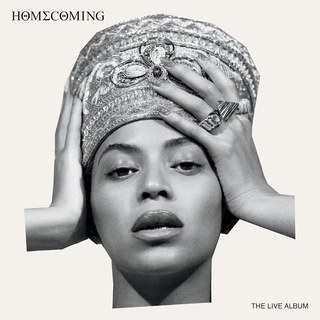
HOMECOMING: THE LIVE ALBUM, Beyoncé
The live album feels like a lost art form. Of late, many feel thrown together without much thought- an offering to the most ardent of fans about as meaningful as a gift card you’d give your coworker. Homecoming is the antithesis of that: a flawless documentation of Beyoncé’s benchmark live performance at the 2018 edition of the Coachella Valley Music and Arts Festival that is a staggering recontextualisation of her entire life’s work, dazzlingly criss-crossing her discography, offering rollicking, thoughtful new arrangements of classics and deep-cuts alike, filtered through the lens of HBCU marching band, playing like a half time show that goes on and on and on, offering the final, definitive evidence that Beyoncé is the greatest showman in modern history by leaps and bounds.

LEAK 04-13 (BAIT ONES), Jai Paul
Discovering Leak 04-13 (Bait Ones) sometime in the summer of 2013 was like being let in on a secret. I felt like the member of an exclusive club of people in-the-know, the possessor of a forbidden document that could only be discussed in hushed tones and accessed illegally. The circumstances of its arrival were uncertain. Had he leaked it purposefully? Were all of the songs really his? It didn’t even have a proper name (it would be christened Leak 04-13 (Bait Ones) many years later). The enthralling mystery of it was eclipsed only by the music itself. It sounded like you shouldn’t have been listening to it, a top secret transmission intercepted and compromised in the process. Its stunningly lush, busy textures were threadbare, pieces of the songs suddenly falling away only to reappear, as if you were streaming it and your internet connection was struggling to keep up. But that only contributed to the mystical grandeur of this earth shattering R&B that felt so purposeful, so impeccably sequenced (not by Jai), so bizarre and at times even funny, so much so that it was difficult to imagine how it could possibly be unfinished- it was perfect.
I don’t think I’d ever really understood how thoroughly devastating the leak was to Jai Paul himself until I read the lengthy note that accompanied his abrupt return on June 1st of this year, when he not only graced us with two stunning new tracks but properly released this album for the first time, a remarkable gesture of goodwill to his fans who gleefully partook in the stolen material, many without much regard to how it’d become available to them. Reading the letter, I felt guilty. The extent to which the leak derailed his career, demolished his trust in the institutions the industry is built on, compelled him to cast himself away from music entirely- his lifeline- and, in his own words, “withdraw from life in general” was genuinely heartbreaking. But the official release of the album that caused so much strife is the culmination of a years long journey of recovery, reconciliation, and growth. It’s a hard-earned reclamation of ownership that signals that Jai Paul, one of the most vital, distinct voices to emerge from the decade, is ready to get back on the horse. Look out.
THE TOP 10 ALBUMS OF 2019:

10. CALIGULA, Lingua Ignota
Caligula is maybe the most stunning document of feminine rage I’ve ever heard- an improbable synthesis of metal and opera imbued with biblical imagery and defined by language that’s as flowery as it is vicious (“may your own shame hang you / may dishonor drown you / may there be no kindness / no kindness / no kindness”). Kristin Hayter’s classically trained voice bends almost to the point of snapping, sometimes bringing her tongue to her soft palate to make a sound somewhere between a hum and a gurgle before launching into blood curdling shrieks as the music around her morphs as well, twinkling piano and organ giving way to billowing, thunderous guitar. It’s music that belongs in a symphony hall, if only they’d allow moshing.

09. SINNER, Moodymann
The songs on Sinner, Kenny Dixon, Jr.’s twelfth album as Moodymann, unspool on their own terms, continually mutating as they go on, shifting gears just when you think you’ve got a handle on them. His house isn’t very dense, but there’s always a remarkable amount of intrigue in his deceptively simple sound, evoking early 70′s R&B until strange idiosyncrasies pop out organically from the fabric of the song, pulling focus, reframing it as you’re listening to it. It’s strange, compelling stuff that beckons you to dive beneath its surface, promising you’ll find something new each time.

08. NO HOME RECORD, Kim Gordon
My favorite Sonic Youth songs were always the ones Kim Gordon did lead vocals on. Her hulking monotone was strangely captivating, even when it wasn’t clear what she was even talking about (which was most of the time.) No Home Record is a sublime capitalization and expansion of her power as a vocalist and writer, embracing those same abstract sensibilities that have defined her work for nearly 40 years but pushing them boldly into the future, crafting entrancing, often menacing sonic dreamscapes that are littered with oblique, powerfully resonant hints at the fruits of her near decade of self-discovery after divorcing Thurston Moore. It’s a debut decades in the making that shockingly reveals new, untapped powers from an indelible titan of rock we thought we’d had pegged.
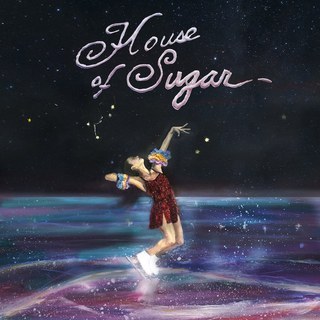
07. HOUSE OF SUGAR, (Sandy) Alex G
Alex Giannascoli’s folk rock warps itself, intentionally obscuring textures and images in a convoluted effort to clarify the feeling behind them. It shouldn’t work but always does, and on House of Sugar, his eighth full-length effort in just nine years, he finds thrilling new power in simplicity and repetition, exemplified by the woozy abstract tapestry of songs like “Walk Away,” “Taking,” or “Near,” wringing a simple phrase, or even just a word, for everything it’s worth, repeating them over and over and over again to craft crystal clear images of longing and pain. But the more traditional songs are just as gripping, striking his strange balance between downtown and backwoods, crafting folk that emanates from deep in the soul and soars out into outer space.

06. BANDANA, Freddie Gibbs & Madlib
Freddie Gibbs and Madlib reunite on the most virtuosic rap album of the year, taking their unlikely marriage of gangster rap and delicately constructed, meditative beats that sound almost like memories to astonishing new heights. Gibbs grapples with personal demons- the lowest lows of his career, his ongoing relationship with drug abuse- but also flexes, showcasing his effortless flow as he flawlessly keeps pace with Madlib’s twisty production, navigating signature changes and tricky rhythms with ease, perfectly in concert with Madlib’s searching, soulful looping beats that envelop you, contorting right when you’ve settled into them. The collaboration keeps you on your toes, demanding your full attention as they whisk you through their kaleidoscopic vision of masterful, immersive rap.

05. ALL MIRRORS, Angel Olsen
The breakup album has never sounded so lush. Plenty can wax poetic about ridding themselves of toxic partners and of newfound freedom, but Angel Olsen tries to get to the heart of what it all meant, how she’d allowed herself to get lost in the relationship, forgetting herself. She makes the process sound luxurious, utilizing a 12-piece orchestra to inject a bolt of energy and welcome drama into her abstracted songwriting, embracing the darkness and working through it to find herself anew on the other side.

04. WHEN I GET HOME, Solange
When I Get Home sounds like you should be listening to it in a museum- and knowing Solange you’ll probably be able to at some point. Its heady sophistication is constantly announcing itself to you, but that’s not to say that it’s impenetrable. It’s her most personal effort, a surreal tour through the Houston of her memory and the Houston of her imagination, exploring the sounds she was reared on, but refracting them, embracing repetition to create a dreamlike, prismatic journey through her influences that, as Solange puts it, can’t be a singular expression of herself “there’s too many parts, too many spaces, too many manifestations, too many lines, too many curves, too many troubles, too many journeys, too many mountains, too many rivers, so many...”
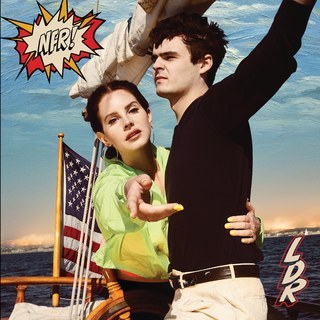
03. NORMAN FUCKING ROCKWELL!, Lana Del Rey
Norman Fucking Rockwell! is Lana Del Rey’s victory lap, an amalgamation of everything she’s always done well packed into a sprawling 68 minute apocalyptic opus, invoking Neil Young, Joni Mitchell, and most memorably, Sublime while utilizing her trademark playful, disaffected word play to craft a soaring requiem for the world as we know it. “L.A.’s in flames” and who cares when there’s a good time to be had? It’s a stunning “fuck you” to an industry and populace that dismissed her viciously when she arrived on the scene, forging her masterpiece on her own terms.

02. U.F.O.F., Big Thief
U.F.O.F. evokes the sensation of reaching out and attempting to make a connection- a connection with another realm, with the dead, with alien life, with a distant lover. The music is open and searching, and to hear the band talk about the process of writing and recording it, this spirit of experimentation was present in the studio. They’d tinker with instruments none of them knew how to play, hoping whatever they could coax out of it might speak to the ethereal textures and opaque poetry of the music they were working on. The result is a ghostly folk masterclass that launches Big Thief into the stratosphere as they work seamlessly in tandem to craft music that touches God.
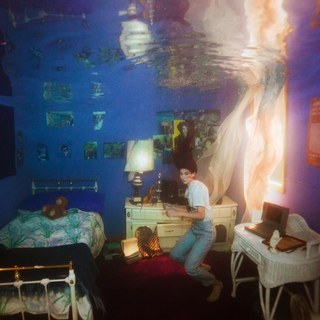
01. TITANIC RISING, Weyes Blood
Struggling to cope with a world on the precipice of collapse, Natalie Mering looks backward, invoking the baroque pop of the 1970′s to search for solace in the stars or the arms of another, like Karen Carpenter scrolling through Tinder or Co-Star. But trying to stave herself away in the past only finds herself submerged in her childhood bedroom. So she bolts forward, utilizing familiar frameworks to craft stunningly lush, contemporary and urgent pop that grapples with crises both personal and apocalyptic with an optimism that feels not naive but like a vital lifeline, like a hand reaching out in the darkness to pull you to safety. It may be a futile gesture, but at the end of a decade that’s abruptly descended into a hellscape, it’s a call to keep the faith and forge on.
#Music of 2019#Titanic Rising#Weyes Blood#U.F.O.F.#Big Thief#Norman Fucking Rockwell!#Lana Del Rey#When I Get Home#Solange#All Mirrors#Angel Olsen#Bandana#Freddie Gibbs#Madlib#House of Sugar#(Sandy) Alex G#No Home Record#Kim Gordon#Sinner#Moodymann#Caligula#Lingula Ignota#Leak 04-13 (Bait Ones)#Jai Paul#Homecoming: The Live Album#Beyonce
13 notes
·
View notes
Text



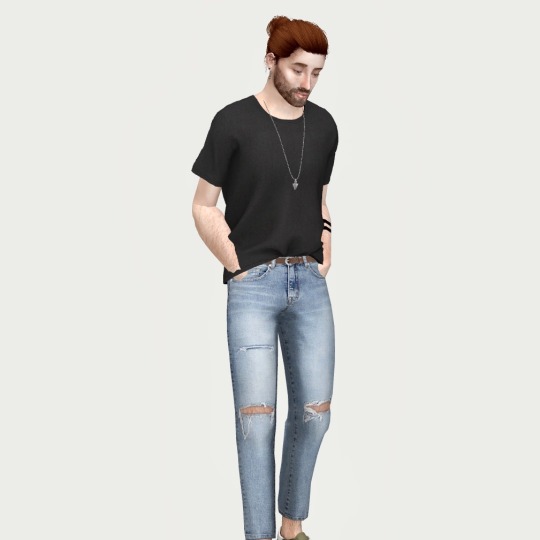
• Finn Maxwell Walsh •
(private sim request)
Aged 19/20ish
From Maryland
Second year music composition and production student
Lives in NYC to attend an arts university
Middle child of three.
Middle class background.
Dark and mysterious.
Jealous.
Finn is a middle child. Often overlooked by everyone and prefers it that way. Finn has always been a trouble maker, constantly breaking the rules, intentionally, and even some laws.
As a teen, Finn was constantly being brought home by police escort for underage public intox, petty thefts, breaking and entering and even had his girlfriend at age 16 obtain a PPO (personal protection order) against Finn.
Finn lost his older sister mysteriously 4 years ago (she would be aged 22 now). He was never affected by her disappearance. His parents refuse to accept the likelihood that their eldest child is dead and this upsets Finn.
Finn and his younger sister, Fayre, have an unusually close relationship. Just 13 months apart, they seem eerily obsessed with each other. This bond wasn’t always present throughout their lives—as children they were close and played together due to their closeness in age, but they were never “joined at the hip” as they are now. This close, nearing-obsessive and co-dependent relationship with his younger sister seemed to have formed virtually overnight after the disappearance of their older sister.
Finn is prone to outbursts of rage, usually rooted in jealousy and suspicion.
At age 16, after the PPO from his exgirlfriend, his parents gave him the ultimatum of getting his act together or being shipped off to a military school while he was still a minor. Finn chose to MOSTLY get his act together. He was still inclined to be a rule-breaker, he just shifted his ways into much more dubious and oblique crimes; cyber frauds and stalking mostly.
This lead to Finn spending a lot of time locked up in his room to study and appear to keep his nose clean. This his where he discovered his love of music.
Finn enjoys playing music. He has perfect pitch and excels at playing guitar and drums. He began producing his own music in his room at age 16 which lead him to seek out a degree in music composition and production at an arts university in NYC.
Finn chose NYC because out of the millions of millions of people walking the streets, he could continue to go wildly unnoticed and easily continue—and expand—his penchant for being above all rules and laws.
[wcif-friendly]
#new#ts4#the sims 4#ts4 alpha#sim profile#character profile#discover university#ts4 discover university#finn walsh#simblr#sim request#porcelains sims
3 notes
·
View notes
Text
Sandor Clegane is still tied to the Stark girls
Scene cuts on Game of Thrones are quite intentionally designed and often include clues to the story. I wanted to see if there was anything to be found about Sandor Clegane’s story from what other stories surround it. I just did the episodes in which he has appeared since his return in season six.
6x7: “The Broken Man”
Double CLEGANE scene >> Margery TYRELL and the High Sparrow read from the Book of the Mother. “As water rounds the stones, smoothing what was jagged, so does a woman's love calm a man's brute nature. A wife salves her husband's wounds, a mother sings her son to sleep." Note: Sansa sings the Mother’s Hymn the night the Hound leaves her after the Battle of the Blackwater.
SANSA writes mysterious letter summoning help after discussing inadequate troop levels w Jon >> CLEGANE scene where he senses grave danger for his people >> ARYA in Braavos books passage back to Westeros, gets stabbed in the gut by the Waif >> CLEGANE hears screams and runs back to Brother Ray’s camp but is too late to help
6x8: “No One”
ARYA recovers with actress, says she wants to see what’s west of Westeros >> CLEGANE kills the first four ex-Brotherhood bandits >> TYRION & VARYS in Essos, Red Priestess says in Valyrian “no man will ever lock us in chains again” (specific to slaves, but possible broad allusion to Sansa being so often a prisoner?)
DANY returns to Mereen on Drogon all angry >> angry CLEGANE connects with the Brotherhood, gets his justice >> ARYA recovers with the actress, heads off to kill the Waif and get her justice
7x1: “Dragonstone”
ARYA hears from the Lannister soldiers about girls taking care of their papas when they grow old, says she’s going to kill Cersei, who has been on her list since the beginning >> CLEGANE (double scene), questions his purpose on the earth, questions the unjust gods, seems to remember Ned Stark as a good man, gravedigger redemption moment tied back to Arya in S4, vision in the flames of a mountain in the north and the army of the dead >> SAMWELL TARLY at Oldtown discovers dragonglass at Dragonstone, discusses return of Dragon Queen with Jorah
7x5 “Eastwatch”
ARYA hunts for clues to Littlefinger’s agenda >> CLEGANE and Jon Snow meet in the Eastwatch dungeon and then form the suicide squad to go beyond the wall. Jon and the Hound bookend the main team as they exit the Eastwatch gate, which is probably just a height thing but might also mean they’re the two most important members of the team
7x6 “Beyond the Wall”
CLEGANE yells at Gendry for wingeing >> JON SNOW and JORAH discuss family and swords >> ARYA and SANSA at Winterfell reminisce and squabble cruelly about long-ago events in King’s Landing >> CLEGANE claims “It’s gingers I hate” (ha!) and Tormund says “I don’t think you’re truly mean--you have sad eyes” then discuss Tormund’s prospects for romance and family >> BERIC and JON SNOW discuss why the Lord of Light wants them alive (answer: unknown, discussion of purpose and divine messages very similar to Beric and Clegane’s convo in 7x01) and why they fight: “Life. Death is the enemy.” Jon says “But we all die,” which is something that Clegane says in 6x08. They discuss defending those who can’t defend themselves.
7x7 “The Dragon and the Wolf”
JON SNOW and TYRION discuss King’s Landing >> CLEGANE checks on the wight in the cargo hold >> Cersei instructs the MOUNTAIN (Lesser Clegane) on who to kill first >> Avengers assemble, CLEGANE and BRIENNE discuss ARYA >> while waiting for Cersei and Dany to arrive, TYRION and CLEGANE discuss (obliquely) the Sack of King’s Landing and the Hound’s desertion during the Battle of Blackwater Bay >> CLEGANE brothers weigh in for Cleganebowl
IMHO, most of Sandor Clegane’s plotlines are either reflected in Stark plots or reference the Stark girls without ever actually putting their names on his lips.
IMHO, it’s because they belong together and are a family. But we’ll see in season eight. Who knows, maybe I’m completely wrong and Jonsa is endgame. Hahaha just kidding that’s ridiculous.
6 notes
·
View notes
Text
“A House Of Many Doors” And Queer Villains
I got @pixeltrickery‘s A House Of Many Doors when it came out two months ago, and I have loved it ever since. It has enjoyable gameplay, stunning art, and, most importantly, a surpassing depth of story. (I'm still finding events that make me go, "hold on, wait a minute, this is another interpretation of those secret history events I learnt about on the last playthrough!") If innovative fantasy and eldritch mystery are your thing, I highly encourage you to get it.
I also love its approach to romance - not all the people you can flirt with are interested in (or capable of) a relationship, a touch of realism I found appealing. However, more importantly, you can flirt with anybody the game provides as an option, regardless of gender. (Indeed, the player character only has what gender you assign their little portrait option; the only time the game gives you explicitly gendered terms of address is if you become a monarch, and even then, it's your choice. The rest of the time you're "boss" or "Captain", and the game sometimes milks this for humor - a robot police officer asking you to select your preferred form of address from "Bucko. Kiddo. Buddy. Sport. Bub. Junior. Pal. Buster. Slick. Sparky. Hotshot. Champ." - or to provide a clue - the guy who calls you "Boy! Girl! Whatever!" may not be something to whom mammalian gender distinctions make sense.)
And something else that makes me happy is the fact that the protagonist isn't the only one to whom this applies. The guard-captain Fiona McConnaghe, in some endings, marries a woman, whom she loves very much. The lookout Nicholas Verdant mentions a man he has back home if you try to flirt with him. And, as it turns out, there's another important character who's not straight.
She's the villain.
Creators very frequently, whether intentionally or unintentionally, queercode their villains, having the villains but not the heroes deviate from Western gender norms, or having the villains act vaguely sexual towards heroes of the same gender, indirectly vilifying such acts. AHOMD, however, provides a heartening example of a way to create not just queercoded, but explicitly queer, villains, while still avoiding the nasty tropes surrounding them. (Below the cut for major spoilers.)
In a late-game interaction with the Governor of the City of Keys, the villain of the "main" questline, she says that in her two thousand years of immortality, she has "loved a thousand men and a thousand women". She's pretty unambiguously bi- or pansexual, and in an option to view her memories in the pilot Banjo Smiggs' questline, you learn that she was, in fact, in love with her lookout, your helpful dream-guide Persephone. But it never - at least to me - felt like the game was vilifying the Governor's sexuality (and by extension mine, since I'm bisexual).
There are three reasons as to why I think this is the case. First, as I mentioned, neither the captain nor any of the other romanceable characters is straight unless you make them that way, so the Governor isn't unusual. In the House, gender has no bearing on one's romantic prospects; the Governor is just a Domicilean like anyone else, unlike in other works where queercoded villains are contrasted by the extremely straight protagonists.
Second, the Governor's sexuality isn't obliquely hinted at; it's explicitly and matter-of-factly stated. One part of queercoding is the refusal to actually admit that the character is queer, contributing to a view of queerness not only as evil but also as something to be concealed. In AHOMD, the Governor's sexuality is only as secret as her actual identity (which is pretty secret, but since you don't know who she really is, not knowing her sexuality doesn't matter).
And third, the Governor's sexuality is listed among her good qualities. The game certainly vilifies her actions - she ate a world, destroying millions or billions. She founded a totalitarian state that, among other things, imprisons bewildered people from other worlds and steals orphans' memories to create unquestioningly loyal agents. She killed the woman she loved. But the passage mentioning her sexuality is stated in the part where she introduces ambiguity to her evil, placed among the clearly good things she's accomplished with her awful immortality, such as her scholarship, leadership, and motherhood.
AHOMD is a good game for many reasons, and its ability to portray queer villains - especially those of the Governor's caliber - without falling victim to unpleasant tropes is a very big one of them.
81 notes
·
View notes
Text
Twitter ARG: A Sort of Summary
I’ve seen a lot of confusion here on Tumblr about what is supposedly going on in the twitter-verse. There’s a reason for that: it’s confusing. It’s vague. It relies on intuitions and moves in fits and starts. But it is also fascinating, compelling, and loads of fun. So for anyone who is interested I thought I’d give it a go, summarizing what is happening and what we think might happen. For starters:
The reason you’re hearing very little concrete information about twitter is: there is very little concrete information about twitter. It is all halls and mirrors. There have been (as far as I am aware) two major instances of people receiving DMs from the twitters: the first was the Dale Pike ‘reveal’ in which she ‘confessed’ and released her ‘script’; and the second prompted worriesconstantly’s announcement that we need to trend Norbury on March 21. But if it’s all so vague, why are putting any stock in it? Well, there are a few good reasons.
1. The show itself pointed us towards twitter in numerous ways.
2. If you’ve been following the ARG theories, you are doubtless aware of the speculation that the John and Sherlock twitters are BBC run. Evidence includes their posting of an original photo that seems like it could only have been taken from a window of the BBC building.
4. Our fellow tumblr-ers who are convinced something is going on. As far as I have seen, there tends to be a direct correlation between the amount of time someone has been digging through this twitter game and how convinced they are that something is happening. Sure, you could call that confirmation bias. Or, like I am inclined to do, you can see it as the collective consensus of those who have the most solid basis for reaching an informed conclusion.
3. The most compelling evidence is the intricacy of what is occurring. Like I’ve said, I’ve only been there two days, but it really is compelling. There’s a network of interconnecting accounts, interacting with each other and with us. Even those who don’t openly communicate display the most curious coincidences in timing. And it’s hard to conceive that they could be fellow-fans—there are too many oblique hints of ‘something coming,’ which would be cruel if they don’t actually know something. To me this feels like a game of ‘BBC or trolls’; and I’d be ridiculously impressed with any trolls who could pull this off, and somehow maintained this level of dedication and interest over such a span of time.
Very well, then. Here are the known players in this Twitter story:
1. The Sherlock and John accounts: These, of course, are the ones tumblr is most familiar with. For the most part, they are just telling an ongoing narrative about their happy existence as a couple—a remarkably frequent and high-quality narrative. However, they have had some meta discussions about stories, about ‘the game’ being a bit harsh but still worth playing . . . It is also worth noting that in their universe Rosie does exist, but the events of TFP apparently do not.
2. Contact_JM, i.e. an account that claims to be Moriarty: This one is also pretty well known around here. He tweets less frequently than the Sherlock and John, but still with impressive dedication. He has not infrequently dropped codes, puzzles, and cryptic clues. Other times he just rambles on in a thoroughly psychopathic-sounding manner.
3. Dale Pike/The Skull/ContactWSSH: Yes, this the Dale Pike who wrote the fics everyone went wild over, released a script they had written, then ‘confessed’ to being a fan and said goodbye. This one concerned me most at first, because I was genuinely concerned that we might be harping on a fan who just made a mistake and wanted to be left alone. The thing is: she didn’t leave. She is still posting fics which are no less meta and suggestive that her previous ones. And she is still using her Dale Pike twitter account—an account created solely for the purpose of . . . whatever it is she is doing. And while using that account she is still being just as openly cryptic and suggestive and interactive as ever—even to the point of resurrecting the old contactWSSH twitter and having a thoroughly mysterious conversation with them. Whoever she is, she has chosen to play this game; she hasn’t been forced into it. And what is she up to? Well, she is the queen of mixed messages. One moment kind and encouraging, the next insulting. Portraying herself as a fan and then claiming some mysteriously privileged status. Declaring she is finished only to begin again. Dropping cryptic hints, ranging from her fanfiction to an eminem music video which concludes with an innocent DVD being replaced by one labeled ‘explicit content.’ She is most likely one of the villains of this narrative.
4. Assorted: Besides these major players there are a few minor players who seem significant—@Bask_in_flies and @HarappaTiger have had brief, cryptic conversations with Contact_JM about executing some sort of plan. @eugenim portrays herself as sort of Eurus/Moriarty hybrid, and interacts like a cross between Contact_JM and Dale Pike: sometimes talking like a fan, sometimes like a psychopathic insider. Besides these, there are a few other potential players that people are keeping eyes on.
5. Creator twitters: there are a few of the Sherlock creators who periodically tweet things that are . . . suggestive, to say the least. Sometimes they are manifestly striking, other times they would passed unnoticed if it weren’t for uncanny timing: Gatiss and the Sherlock account both posting about moors around the same time, for example. The comments on their tweets can also be ripe with suggestion and ‘coincidence’.
Good. Now, finally: What all of this is hinting at:
I’m going to divide this section into two parts. First: What we know (as much as we know anything at this point):
1. The hints and the halls and mirrors cannot yet be assembled into a complete and coherent image. But they insistently hint at a secret episode, a false narrative, and something coming.
2. What has been seen on twitter strongly supports theories about a future fourth-wall break—both in the sense that what is going on in twitter is already breaking the fourth wall, and that it is hinting at some further, more undeniable break.
3. In this narrative, there are good guys and bad guys. Figuring out which is which seems to be part of the puzzle.
4. There are hints that this might be a ‘choose your own story’ ARG: obviously it would end in the release of The Lost Special no matter what we do, but we might have some say in how that happens and what role we play in its release.
5. Whatever is coming is still being only hinted at; it has not yet begun in earnest.
6. Maybe it’s a fluke, maybe it’s intentional, but this past week has felt different. More urgent—like something is coming. (Having just arrived I can’t testify to this one, obviously; but it seems to be the general consensus of those who have been involved long-term).
7. We are supposed to trend Norbury on March 21st—and this time, we will have help. (Okay, we don't technically know this. But again, worriesconstantly assures us that she has good reason to suspect this is the case on the basis of some dms. And seriously, what could she have to gain by making this up? Making people angry at her if nothing happens? There is always the possibility that this is another intentionally false lead from tptb; but worries constantly is certainly trustworthy, and it’s worth a try. Fortunately, #norbury has the added bonus of being worthwhile even if it doesn’t launch anything ARG related).
And finally: What we believe might be coming:
Well, okay, the actual speculations are far too numerous to actually list here. I’m just going to give my personal favorite theory about what might happen if/when the ARG kicks off and the fourth wall collapses for good. However, because this post is getting quite long and this isn’t really an essential part, I’m going to link to a separate post here for anyone who is interested.
In conclusion: What do we do with all of this?
Whatever you want, really. If you’d rather sit back and watch things unfold, go for it. (Although I’d still encourage participating in #norbury even if you are giving twitter theories a wide berth. That’s is a worthwhile project regardless of the ARG; something being set in motion by it would just be an added bonus!) But if you are aching for engagement, learning to navigate this twitter story will give you no end of entertainment and brain-teasers. So if you want to have a good time while potentially participating in making history, give it a look.
And remember, all of this endorsement is coming from someone who attached very little credibility to the ARG until getting on twitter just one day ago. If you’re intrigued, come and see for yourself. You would be most welcome!
@worriesconstantly
82 notes
·
View notes
Text
In Ascending Order: Ranking Every Peak-Era (1980-2004) U2 Song
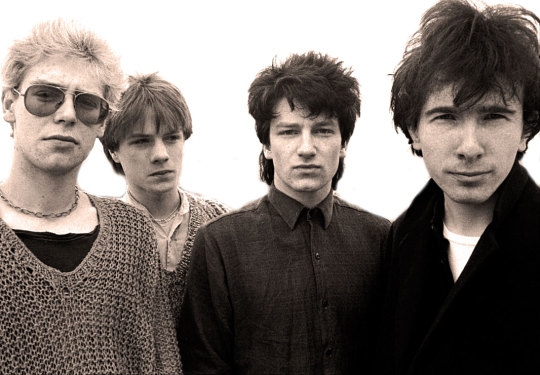
Few classic rock bands’ legacies have been as negatively impacted by their latter-day material as U2. Or at least that’s how it seems whenever the Irish four-piece release a new album: The knives (and snark) come out on Twitter and in critical reviews.
This always struck me as a little odd: Yeah, I’m not going to defend Songs of Experience or anything — their recent albums are legitimately bland and uninspired. But they’re also nearly 40 years into their recording career. The Rolling Stones lost their juice 15 years before that, and most other classic rock titans like The Beatles or Led Zeppelin or Guns n’ Roses simply broke up when they were still hot. The only classic rocker who stayed legitimately relevant in his old age is David Bowie, and even he was irrelevant for about 15-20 years before his final two comeback albums (maybe U2 can pull that off in a decade or two?).
So instead of focusing on U2′s diminishing returns, I want to celebrate their peak, starting with their energetic 1980 debut, Boy, up until the last album one could legitimately call a hit, 2004′s How To Dismantle an Atomic Bomb. This is a ranking of all 119 original album tracks from the 11 albums U2 released during this period. Here’s the ground rules:
1) No new tracks. The bottom of this list would be clogged with Songs of Experience and Songs of Innocence tracks otherwise (with a notable exception). It hurts to cut out No Line on the Horizon, which I’ve always found underrated, but it was a flop, and frankly, even its best songs wouldn’t crack the top 20. (Also, I’m not trying to make jokes about that forcing-songs-onto-your-phone debacle for half the list)
2) No covers or live (re-recorded) tracks. This only really applies to Rattle And Hum, which sprinkled in live recordings of previous U2 songs, as well as classic rock covers. I’m only counting the brand-new songs from that album. However, if it’s a new track that’s a live recording, it qualifies.
3) No EP tracks, side projects or stand-alone singles. This rule disqualifies anything from the Passengers album, Wide Awake in America, or any movie soundtrack tunes (or “A Celebration,” which I adore for how ridiculous the music video is).
#119: “Wild Honey” (All That You Can’t Leave Behind, 2000): Dear lord, is this saccharine. Corny hippie love songs are absolutely not a good fit for U2, and the band themselves seem over it. Also, pro tip: don’t compare yourself to a monkey.
#118: “One Step Closer” (How To Dismantle an Atomic Bomb, 2004): Unfortunately, it’s not a Linkin Park cover. In fact, it’s crazy boring.
#117: “Grace” (Leave Behind): Anyone who tries to tell you All That You Can’t Leave Behind is a top-tier U2 album clearly has only listened to the first half, because the second-half is quite uninspired. “Grace” tries to personify the titular attribute over a quiet soft-rock beat, and you’ll forget everything about it as soon as you listen to something else.
#116: “Love Rescue Me” (Rattle And Hum, 1988): Bob Dylan co-wrote and sings with Bono on this song. Unfortunately, it isn’t anywhere near “Like A Rolling Stone.” In fact, it’s six-and-a-half minutes of by-the-numbers bar blues that really makes clear why Rattle And Hum was considered a disappointment at the time.
#115: “Yahweh” (Atomic Bomb): I’m going to apologize now for the bottom of this list being mostly filler tracks from Atomic Bomb and Leave Behind, but I couldn’t help it. They both have their classics (we’ll get to those later), but when they’re bad — like in “Yahweh,” where Bono literally asks Jesus to kiss him on the mouth — they’re quite bad.
#114: “A Man And A Woman” (Atomic Bomb): Can someone let U2 know that they’re from Ireland and not Spain and they really can’t pull off this tired Latin-lover schtick?
#113: “The Playboy Mansion” (Pop, 1997): A lot of Pop reeks of its time period, but I don’t mind that for the most part. However, “Playboy Mansion” is dated in the worst way. It’s sleazy without being fun, like a half-drunk lounge singer mumbling at 3 a.m. in some upstate New York Holiday Inn about random pop culture references (Big Macs? Plastic surgery? O.J. Simpson?!). “Playboy” has aged very badly, and not in an entertaining way, unfortunately.
#112: “Is That All?” (October, 1981): There’s no songs on October, U2′s most forgotten album, that are outright garbage, but there are a few that are definitely pointless and meandering. This is one of them. “Is That All?” sounds like the record company needed one more song for the album, and the band just threw this together in 5 minutes.
#111: “Peace On Earth” (Leave Behind): The production is lifeless, but Bono’s lyrics actually have some bite to them. His moaning about the dire state of the world is a bit overwrought, but in an album full of rah-rah optimism, this is a nice change of pace.
#110: “4th of July” (The Unforgettable Fire, 1984): It’s an instrumental track. It does provide some nice atmospheric build-up for the classic song that immediately follows it, but on its own, “4th of July” is very skippable.
#109: “Crumbs From Your Table” (Atomic Bomb): “Crumbs” has a nice rock groove, but I think I’ll pass on the guilt trip. Yes, world hunger is a legitimate issue that Bono is noble for trying to fix, but instead of inspiring people to help here, he just gets bitter. Not for me. Although “Crumbs” does get one great line in: “Where you live should not decide/whether you live or whether you die.”
#108: “When I Look At The World” (Leave Behind): Decent production, but a forgettable tune and lyrics.
#107: “Red Light” (War, 1983): I’ve always felt that War would make a fabulous 8-song, super-short album. But nope, there’s two extra songs that are quite pointless, if not outright bad. “Red Light” is one of them. Bono gives the necessary energy, but there’s no hook. And the trumpet solo feels very out-of-place.
#106: “Stranger In A Strange Land” (October): This song is about immigration, but unfortunately, like most of the songs from October, the lyrics are too bare-boned to go too in-depth (Bono infamously lost his lyric book in Portland, Ore. right before they were set to record...oops).
#105: “Surrender” (War): This is the other song that should’ve been kept off War. It also lacks a good hook or interesting lyrics, but the verse melody is halfway-decent, so it goes a couple spots over “Red Light.”
#104: “Another Time Another Place” (Boy, 1980): Boy is a sneaky-good debut album from a band that’s mostly remembered for their mid-period years in the late-’80s and early-’90s. I’ve always felt their unpolished early albums never got the love they deserved. Unfortunately, “Another Time Another Place” doesn’t help my argument: it’s pretty paint-by-numbers.
#103: “Some Days Are Better Than Others” (Zooropa, 1993): Whether you like U2′s futuristic fever dream Zooropa or not, you certainly can’t call it unmemorable. ...except this song, which is pretty unmemorable.
#102: “Fire” (October): “Fire” has a nice rollicking energy to it that’s ruined by some of the most painfully unimaginative lyrics I’ve heard in a U2 song. The missing lyric book strikes again!
#101: “The Ocean” (Boy): It’s the shortest U2 song! Yes, even shorter than the instrumental “4th of July.” “The Ocean” is a nice melancholy tune, but because of its brief runtime, it sort of comes and goes without leaving much impact.
#100: “In A Little While” (Leave Behind): I guess for a John Mayer soundalike, this isn’t bad. The melody is nice. But ugh — I will never be able to stomach that faux-troubadour, early/mid-’00s singer-songwriter sound. Sorry, blame Jack Johnson oversaturation during my formative years.
#99: “If You Wear That Velvet Dress” (Pop): A gorgeous, subtle ballad that’s a breath of fresh air on U2′s noisiest album. Or at least, I’m assuming; I honestly can’t hear what’s going on. Bono is whispering more than singing for the entire first minute, and you have to crank up the volume just to tell what the hell’s going on. I get what they were going for here — a bleak, desperate ballad — but the execution was off.
#98: “Original of the Species” (Atomic Bomb): Atomic Bomb has lots of corny moments, and this entire song is one of them. It’s also kind of a mess, structure-wise: “Original” feels like a Frankenstein’s monster of power ballads, like four different songs awkwardly smushed together. But, I’d be lying if that chorus doesn’t have enough classic U2 oomph to redeem “Original” just a bit.
#97: “Scarlet” (October): A song with one word? I mean, you could call it intentionally minimalist...or you could assume that Bono was winging it after he left that lyric book in Portland. Yes, that one incident scars most of the album.
#96: “Daddy’s Gonna Pay For Your Crashed Car” (Zooropa): I think this is U2 going after the one percent, but it might be about a pimp? Or a serial killer? It’s kind of vague, which I feel was supposedly intentional. Unfortunately, the production takes too long to really pick up to help the song stand out beyond that.
#95: “Shadows and Tall Trees” (Boy): I don’t really go to Boy for its spaced-out ballads, but “Shadows” is still an okay track. The imagery is oblique and mysterious, and the final climax is a nice touch as well. Nothing mind-blowing (the lyrics get a bit repetitive), but it’s certainly an acceptable album closer.
#94: “Who’s Gonna Ride Your Wild Horses” (Achtung Baby, 1991): Achtung might be U2′s best album (sorry, Joshua Tree), but if there’s a weak link, this is it. “Wild Horses” isn’t a terrible tune, but it certainly suffers from cliched lyrics and production/melody that sounds suspiciously like a car commercial. It’s the band’s awkward attempt at a Springsteen song, and it doesn’t quite click.
#93: “I Threw a Brick Through a Window” (October): Definitely on the repetitive side, but that opening drum beat! And the Edge’s furious guitar work! It’s only half a song, but at least it’s a pretty good half.
#92: “Exit” (The Joshua Tree, 1987): Easily the darkest, most sinister song on Joshua Tree, but it doesn’t quite work. The climax is great — it’s all discordant guitar shredding and fast-paced drums — but it’s too short, and the buildup isn’t interesting enough.
#91: “Love and Peace or Else” (Atomic Bomb): This is another U2 track with a great idea (that sludgy, distorted guitar tone in the beginning is delicious), but winds up not quite working due to another factor (Bono turning it into a mediocre blues song).
#90: “Indian Summer Sky” (The Unforgettable Fire): It’s a near carbon-copy of “Wire,” which appeared just earlier on the album. Luckily (as you’ll see later), “Wire” is a great song, so “Indian Summer Sky” isn’t a disaster by any means. But it also fails to stand out.
#89: “When Love Comes to Town” with B.B. King (Rattle And Hum): When Rattle And Hum was released, some critics took shots at U2 trying to place themselves among rock legends like B.B. King, but I don’t really have an issue with that. What I have a problem with is Bono getting completely outclassed on his own song (King fulfills his duty with some silky-smooth guitar solos), which turns out to be pretty standard blues-rock. Come on, y’all could’ve given King something better to work with.
#88: “The Refugee” (War): This song is kind of ridiculous (having tribal drums for a song about refugees might not have been the most sensitive choice there, guys), but it’s got enough righteous anger and energy (and grunting noises???) to make it memorable. Not a War highlight, but not skip-worthy, either.
#87: “Heartland” (Rattle And Hum): “Heartland,” Bono’s ode to the American landscape, certainly is gorgeous. Edge and Larry Mullen Jr.’s harmonizing backing vocals add a lot here. But it feels a bit odd to have Bono singing his guts out on the chorus about ... uh, wheat fields and rivers.
#86: “If God Will Send His Angels” (Pop): I’m not sure if this song was meant to sound sleazy or sincere, it unfortunately winds up in the awkward middle in-between the two. Still, Bono comes through with a solid chorus melody, and I do have to give props for songs that sound better after 1 a.m.
#85: “Mothers of the Disappeared” (The Joshua Tree): “Mothers” tackles a very heavy subject: children who had been kidnapped by dictatorships in Chile and Argentina. As a result, the funeral durge sound is appropriate. It’s not the most memorable album closer, but it wasn’t meant to be anything other than a respectful tribute, which it does nicely.
#84: “New York” (Leave Behind): It’s a bit odd that a song this pessimistic and odd (by U2 standards, at least) wound up on the very radio-friendly All That You Can’t Leave Behind. It’s an interesting, trance-like song with a nice crunchy chorus that’s only dimmed by Bono’s lyrics: “Hot as a hair dryer in your face/ Hot as a handbag and a can of mace.” ...what?
#83: “Tryin’ To Throw Your Arms Around the World” (Achtung Baby): The vibe of this song is clear from the first verse: it’s all about that feeling early in the morning where you’re coming down into a hangover and you feel sluggish and helpless, but you’re still a little drunk. It captures that moment exactly, and if it was a more pleasant moment to live through, it would’ve ranked more highly.
#82: “Twilight” (Boy): Nope, not about sparkly vampires. It is about some random old guy stalking a young schoolboy though, so the creepy, spider-like guitar hook is quite appropriate.
#81: “Trip Through Your Wires” (The Joshua Tree): U2, at the height of their powers and fame, decided to record a country song. No, not heartland rock or folk — straight-up country. And it’s shockingly okay, for a bunch of Irish guys trying to sound like they’re from Texas.
#80: “Miracle Drug” (Atomic Bomb): Like most passable late-era U2, “Miracle Drug” is cheesy as hell...but damn, that chorus hits you in the gut. It doesn’t matter what inane lyrics Bono spits out if he can belt out a soaring melody coupled with those classic Edge riffs.
#78/79: “An Cat Dubh/Into The Heart” (Boy): This pair of tracks is meant to be the soundtrack of a teenage boy being seduced for the first time (this concept isn’t nearly as icky when you remember half the band were teens at the time). But instead of feeling sexy, it sounds unsettling. Still, it kind of works as a sinister, dangerous post-post punk track, so *shrug*
#77: “Angel of Harlem” (Rattle And Hum): I’m not sure why U2 felt a connection to Billie Holiday, and this song is a bit over-the-top with its horn pop-ins and Bono’s aggressive reference-dropping. But if you give into its charms, “Angel of Harlem” has a nice R&B groove and it’s a fun little detour from the overwrought seriousness of the rest of Rattle And Hum.
#76: “So Cruel” (Achtung Baby): Achtung was partially inspired by The Edge’s still-fresh divorce, and it clearly shows on this track. “So Cruel” is a raw, wounded trip-hop ballad that would’ve been a lot better if it was trimmed by about a minute.
#75: “Promenade” (The Unforgettable Fire): There’s been a few songs so far that I’ve criticized for not really having much of a climax. “Promenade” also shares that problem, but it was done intentionally here, like a tease. Although that still frustrates me, I have to at least respect “Promenade” for its gorgeous buildup into nothing.
#74: “With a Shout (Jerusalem)” (October): I have no clue what this song is about. Probably something Biblical, given how seemingly half the lyrics are Bono yelling “JEERUUUUUSAAAALEM” and going on about blood spilling and whatnot. Regardless, that new wave groove kinda bangs.
#73: “Drowning Man” (War): This is one of two ballads on a very angry, intense album. Although “Drowning Man” is decent, it’s definitely the weaker (and rightfully less famous) of the two. Bono’s on his A-game, wailing away like a lunatic in the best way possible, but the song itself kind of meanders around and then just ends.
#72: “Numb” (Zooropa): Putting this as Zooropa’s lead single might have been U2′s ballsiest move. Sure, the band has taken plenty of risks, but introducing their new album with The Edge monotonously mumbling random statements over a glitchy industrial beat? If Pitchfork was around in 1993, they would’ve eaten it up. As a song, it’s just okay. As a prank on the general public, it’s great. As a music video, it’s U2′s undisputed best (don’t fight me on this).
#71: “Staring At The Sun” (Pop): This is easily the song that’s aged the least on Pop, which is both a positive (it doesn’t reek of the late-’90s and can easily fit into modern concert setlists) and a negative (the aggressive late-’90s vibes of Pop are actually really fun). In other words, it’s a passable mid-tempo ballad.
#70: “Van Diemen’s Land” (Rattle And Hum): Edge actually sings this one! It’s a nice little Irish folk ballad, and proof that letting the guitarist sing for a song or two is never a bad idea.
#69: “A Day Without Me” (Boy): Fun fact: this is U2′s first single from their first album. It’s a passable, bouncy tune, but I’m kind of shocked that it was chosen as a single ahead of some of Boy’s stone-cold classics (we’ll get to those later).
#68: “The First Time” (Zooropa): Nestled into an album full of weirdo experimentation is this minimalist tune about how others’ compassion means nothing if you’re not willing to accept it. Ends with a nice twist on the classic Prodigal Son story. Not U2′s most gripping ballad, but there’s something about it that lingers with you.
#67: “Stuck In A Moment You Can’t Get Out Of” (Leave Behind): The studio version is decent, but the acoustic version that Bono and Edge play live really accentuates the melancholy nature of Bono’s lyrics. Based on its backing instrumentation, “Stuck” can either be about getting stuck in a rut, or an uplifting anthem about getting yourself out of that rut.
#66: “One Tree Hill” (The Joshua Tree): No, it’s not about the TV show. “One Tree Hill” is actually a touching tribute to a former roadie and confidant of the band, Greg Carroll, a Maori man killed in a motorcycle accident. The song is an appropriate mixture of mournful and celebratory; A fitting sendoff to a good friend.
#65: “Acrobat” (Achtung Baby): Achtung Baby is a snarky, sarcastic album for the most part, but that fades away in the album’s closing three tracks, which are all proudly earnest in different ways. “Acrobat” is the angry one, in case you couldn’t tell by Edge’s sharp guitar (plus a killer solo at the end) and Bono railing against his critics. U2 have displayed their anger better in the past, but this is certainly no slouch of a song.
#64: “Last Night On Earth” (Pop): U2 takes on desert rock here, and they mostly nail it, mainly thanks to that massive, scream-along chorus. This could’ve easily fit on the Fear and Loathing soundtrack, and that’s a pretty weird thing to say about U2.
#63: “All Because of You” (Atomic Bomb): The best tracks from Atomic Bomb are in its actually-solid first half, and the rollicking, braindead-but-in-a-good-way “All Because of You” is a perfect example of that. Don’t think about it too hard, just nod your head to the dad-rock groove.
#62: “Stories For Boys” (Boy): I’m honestly surprised this many songs from Boy didn’t make the top half of the countdown given how much I like the album, but it’s more of a consistent record than a truly legendary one. “Stories For Boys” is essentially a catchier version of a lot of the album’s other wire-y post-punk jams.
#61: “I Fall Down” (October): Now we’re getting into the October tracks that actually feel like real songs instead of half-baked ideas. “I Fall Down” has all of the great early U2 hallmarks: a classy Edge piano riff; a surging, angry chorus; and Bono singing oblique cryptic lyrics that make no sense, but hey, they sound cool. Underrated track.
#60: “In God’s Country” (The Joshua Tree): AMERICA. BALD EAGLES. DESERTS. FARMS. OPEN PLAINS AND STUFF. (In all seriousness, this is a solid tune, if a bit hyperbolic with the Americana-themed lyrics.)
#59: “Lemon” (Zooropa): We’re halfway through the list, and I think it’s appropriate to mark that with one of U2′s more prominent experiments. After Zooropa’s first single was the jokey “Numb” with Edge rapping in monotone, having the second single be Bono singing in a hammy falsetto over a disco beat felt goofy too. But on deeper listen, the lyrics are actually quite heartbreaking: Inspired by the death of Bono’s mother (we’ll return to that topic soon), “Lemon” is all about how we use photos and film to try and grasp onto the past. But tragically, just watching home videos of a dead loved one can’t bring them back. Hence, Bono is “slipping, slipping under” and “feels like (he’s) holding onto nothing.” And if you want to, you can ignore the lyrics and just jam to the very-’90s dance beat. (although it really didn’t have to be seven minutes long...)
#58: “Silver and Gold” (Rattle And Hum): Bono and the gang bring plenty of righteous fury to this anti-apartheid track, even if there is an awkward moment in the middle where Bono rambles for a minute. But then Edge...uh... “plays the blues” (which apparently is code for SHREDDING), and he redeems his singer for halting the song’s momentum.
#57: “Rejoice” (October): Here’s a secret: If you can get through the repetitive filler tracks, October smuggles in some absolute new wave BANGERS. “Rejoice” is one of them.
#56: “Wake Up Dead Man” (Pop): If you’ve ever had the desire to hear Bono drop the F-bomb in a song, here you go. But beyond that odd moment, “Wake Up Dead Man” is notable for being possibly U2′s most depressing track. Pop was described by the band as “starting at a party and ending at a funeral,” and since this is the closing song...yeah, funereal is a good descriptor. Bono is essentially on his last legs, begging God to come and save an increasingly broken world, and it’s implied that God probably won’t step in. We’re all fucked. No wonder they wrote “Beautiful Day” and “Walk On” a few years later; U2′s moods couldn’t have gone anywhere but up from this.
#55: “Elvis Presley and America” (The Unforgettable Fire): Ever wonder what it would sound like if U2 took one of their songs, slowed it down dramatically, added some sparse guitars and then had Bono ramble over it for six and a half minutes? You’d get “Elvis Presley and America,” which I hated the first 20 times I heard it. Then things clicked, and now I think it’s a work of art. Still not sure how it wound up on a U2 album, though.
#54: “Dirty Day” (Zooropa): I have no clue what this song is about, but the nocturnal, alley-dwelling vibe sure sounds cool. If you squint at it right, it could totally be one of Pulp’s darker tracks, minus the heavy British accents.
#53: “Love Is Blindness” (Achtung Baby): Out of Achtung’s emotional final three songs, “Love Is Blindness” represents despondency. The gothic atmosphere captures the sad-sack feeling fairly well, but I’ve got to admit something painful: Jack White might have done it better. These are lyrics meant to be screamed, not whispered.
#52: “Sometimes You Can’t Make It On Your Own” (Atomic Bomb): Here’s another dead-parent ballad, this time about Bono’s dad. It’s totally cheesy, but in a very endearing way that, if I’m in the right mood, might draw a few tears out.
#51: “Babyface” (Zooropa): It feels a bit wrong to put a slimy song about what sounds like virtual reality future porn (or something like that) over a very sincere ballad about the death of Bono’s father. ...but U2 pull off being creeps really, really well! It’s actually a bit concerning how well they pull it off here, but that slinky groove is just too hard to resist.
#50: “Tomorrow” (October): “Tomorrow” is Bono’s first song about one of his parents dying; In this case, it’s his mother. The Irish bagpipes were a nice touch, and of course, it ends as a raw, emotional tornado complete with a piercing Edge solo. Imagine if all of October was as fully-formed as this.
#49: “October” (October): The other notable ballad from October is its title track, where the album’s minimalism is intentional. Edge plays a sparse, gorgeous piano line, Bono waxes poetic for a little bit about the depressing nature of the fall, and Larry Mullen Jr. and Adam Clayton get a bathroom break. I wish U2 did more stripped-down piano songs like this.
#48: “Like A Song” (War): “Like A Song” obviously isn’t as furious as some of War’s highlights, but it’s certainly not a perky song either. I’m honestly shocked this anti-nationalist anthem isn’t a bigger fan favorite: There’s a lot of nervy energy here, and Bono’s lyrics are wonderfully bombastic.
#47: “Wire” (The Unforgettable Fire): Fun fact: “Wire” is so cool that it was featured in an episode of Miami Vice. Also, it’s one of, like, three songs on Unforgettable Fire that isn’t super-ambient and hazy, so it provides a nice energy boost.
#46: “Red Hill Mining Town” (The Joshua Tree): This mid-tempo slow-burner about the 1984 UK coal miners’ strike is most notable for being the only song from Joshua Tree that U2 had never performed live — until 2017′s Joshua Tree Tour, where they performed the album in full every show. Why did they avoid playing it live? Well, listen to that chorus. Hear the high notes Bono is clearly scraping to hit. It’s incredibly impressive and moving on record, but to do that every night would destroy his vocals. I’m shocked that I got to see it live myself, but it was just as intense as I’d hoped.
#45: “Seconds” (War): War is an album about politics written in the ‘80s, so it was pretty necessary to have a song about nuclear war. This one’s got a deceptively bouncy beat and ... wait, is that Edge singing the first verse?! "Seconds” gets bumped up a couple spots just for that alone. Also, fake-happy songs about nuclear war in general are great, just ask Nena.
#44: “Miami” (Pop): I was very, very tempted to place this higher. Out of all their ‘90s experimental tracks, “Miami” might be the most weird. Yeah, “Numb” is up there too, but at least that was catchy. “Miami,” meanwhile, features sunburnt Bono ramblings about their kitschy surroundings in the titular Florida city over what sounds like the soundtrack to a stalker. Adam and Larry’s rhythm is persistent and slowly grows louder and louder, until the climax, where everything explodes: Edge’s guitar cuts through the song like a machete and Bono is screaming “MIAAAAMI” like he’s on bath salts. Does it make any sense? Hell no. But that makes this very late-‘90s excursion all the better.
#43: “Hawkmoon 269″ (Rattle and Hum): One of Rattle and Hum’s few excursions into the blues that actually works, because it’s so raw. And how about that slow build?? Over six minutes, “Hawkmoon” goes from a quiet R&B groove to Bono nearly coughing up a lung because of his vocal wailings. And of course, it closes with a gospel choir. It’s so ridiculous that it works.
#42: “Kite” (Leave Behind): What’s sadder than a dead-parent song? How about a song about your parent dying slowly before your eyes? This gut-wrenching track about Bono’s father is a tear-jerker, even with its cringy, unrelated final verse (“The last of the rock stars/when hip-hop drove the big cars”...smh).
#41: “Zoo Station” (Achtung Baby): What’s that strange, aggressively-European noise? Why, it’s the sound of rock’s greatest reinvention taking place! Its ominous opening piano plinks (which is actually the Edge distorting his guitar...how, I don’t know), Larry and Adam’s krautrock backbeat and Bono’s filtered vocals are a huge breath of fresh air from the ~authentic~ sounds of Rattle and Hum. Perfect intro to a perfect album.
#40: “Desire” (Rattle and Hum): Of course, those ~authentic~ sounds can kick ass when executed correctly. Rattle and Hum’s first single is a primal blast of Bo Diddley rockabilly that comes in, rocks your face off, and gets out. In 1988, I’m sure “Desire” almost made R&H sound like a good idea at first. Also: HARMONICA SOLO!
#39: “Please” (Pop): “Please” is sort of the sadder, dejected cousin of “Sunday Bloody Sunday”: Both songs are about The Troubles in Northern Ireland, but while the latter is an angry, righteous call-to-arms, “Please” is begging for mercy. U2 were sick and tired of the atrocities committed in the name of nationalism or loyalism (especially by 1997, when the conflict had been going on for over 30 years), and this track is a desperate, Hail Mary prayer to the politicians to do something, anything, to stop it. By 1998, the Good Friday Agreement was signed a year later, mostly ending the violence, but “Please” stands as a time capsule of Ireland and Northern Ireland’s exhaustion.
#38: “One” (Achtung Baby): Behold: The most overrated U2 song! “One” is still a good ballad, but let’s not pretend it’s U2′s best song or anything. Musically, this is just an average rock mid-tempo ballad. There’s no goosebump-inducing moments like there are with U2′s best slow tunes; With “One,” you sort of sit there, listen to it, and go, “Hmm. That was nice.” And that’s exactly what it is: Nice. It’s got a nice melody, some admittedly great lyrics, and it’ll get stuck in your head a bit. But I find myself skipping it sometimes when going through Achtung to get to that album’s weirder and wilder tracks. Sorry, I’ve just never been able to connect — but I can at least see why it’s considered a classic.
#37: “40” (War): Ending U2′s angriest album with a hopeful prayer for peace and change (based off Psalm 40) was almost necessary. After the raging fury of War’s previous nine tracks, “40″ is a calming salvo with a simple melody that could’ve been written centuries ago.
#36: “Until The End of the World” (Achtung Baby): Role-playing as one of the Bible’s most infamous villains isn’t unheard of in rock (oh hi, Mick Jagger), but this sympathetic look at Judas still stands out thanks to a killer Edge riff and Bono effectively playing both a dirtbag and a repentant sinner. Definitely an overlooked track.
#35: “Mofo” (Pop): U2 goes full ‘90s techno! ...no, wait, please come back, it’s nearly as embarrassing as you’d expect. In fact, it’s quite amazing. This is arguably some of Adam and Larry’s best rhythm work here: That drum machine and synth bassline is laser-focused. But what really makes it work is Bono, trying to cut through the noise to find a connection with his dead mother. In a way, “Mofo” serves a similar purpose as “Lemon,” but the former steps it up on the production end. It’s crazy to think that just a decade before this, U2 were writing faux-country.
#34: “God Part II” (Rattle and Hum): Supposedly this is a sequel to John Lennon’s “God,” but besides a quick shot at Lennon biographer Albert Goldman, “God Part II” has little connection to the former Beatle. Instead, what we get is a caustic, seething tirade against ‘80s capitalism, fame and other random subjects that really stands out among the rose-colored nostalgia of Rattle and Hum. It borders on ridiculous, but Bono’s unconcealed anger makes “God Part II” legitimately great.
#33: “Walk On” (Leave Behind): To a lot of people, I’m sure “Walk On” represents U2′s 21st-century descent into cornball sentimentality and empty optimism. And although there’s a lot of modern U2 songs that fit those descriptors, lay off this one. “Walk On” is a goddamn classic that’s legitimately uplifting. Is it cheesy? Duh. Does that stop the song from filling me with warm fuzzies every time? Nope.
#32: “Two Hearts Beat as One” (War): "Two Hearts” has unfortunately been overshadowed by War’s other two singles, both of which deal with much, much weightier topics. Still, a post-punk banger is a post-punk banger.
#31: “Gone” (Pop): There isn’t another U2 song that describes the intoxicating rush and subsequent crash of fame better than “Gone.” Edge’s howling air-raid-siren guitar signifies regret just as well as Bono’s melancholy lyrics: “You’re taking steps that make you feel dizzy/until you learn to like the way it feels” is a powerful, succinct way of describing celebrity’s danger and addictiveness.
#30: “Running To Stand Still” (The Joshua Tree): Now we’ve reached the legitimately legendary tracks on Joshua Tree: the first five songs. “Running To Stand Still” is the most unassuming of that opening quintet, until you realize the song’s about slowly dying from heroin in a dingy Dublin flat. Suddenly, the quiet piano ballad turns from pretty to haunting. Near the end of the track, “Running” threatens to reach a righteous, inspiring U2-trademark climax — but it never does. Just like for those heroin addicts, there wasn’t an escape.
#29: “The Unforgettable Fire” (The Unforgettable Fire): Despite U2 being one of the ‘80s’ biggest bands, they never really fit that decade’s sound and aesthetic. There’s a reason why semi-contemporaries like Duran Duran and Bon Jovi are more associated with the Reagan years: They followed the trends, while U2 kinda did their own thing. But for “Unforgettable Fire,” U2 actually created a song that sounds super ‘80s. And it’s wonderful: Massive snare drum hits! Synthesizers! Abstract lyrics about nuclear war (it was inspired by an art exhibition featuring works from Japanese atomic bomb survivors)! Honestly, this could’ve been on a John Hughes movie soundtrack and fit right in — and that’s a high compliment.
#28: “The Electric Co.” (Boy): The best moments on U2′s first two albums are when they cut loose with loud, super-catchy new wave tracks that are shockingly danceable. “Electric Co.” is absolutely one of those songs. The lyrics are mere placeholders for Edge’s first true rock-god guitar solo and Larry Mullen Jr. providing a energized beat Franz Ferdinand would’ve killed for. In other words, it’s — wait for it — electric. (I’m so sorry)
#27: “Even Better Than The Real Thing” (Achtung Baby): The acidic desert-rock of “Even Better” feels absolutely effortless. You could play this in a club today, and it might kill; That’s how perfect this groove is. And nobody played a slimy lounge lizard better than circa-1991 Bono.
#26: “Bullet The Blue Sky” (The Joshua Tree): I’d hesitate to call “Bullet The Blue Sky” U2′s angriest song (there’s a pretty massive tune still to come that fits that bill), but it’s a close second. This fiery, nearly-metal (yes, really) track is four and a half minutes of white-hot fury directed at Ronald Reagan and the U.S. military for their interventions in El Salvador and Nicaragua. It’s odd to hear a band typically thought of as “safe” directly attack an at-the-time popular president, but it’s thrilling. And how about that deliciously hammy spoken-word ending?
#25: “Pride (In The Name Of Love)” (The Unforgettable Fire): Yep, we’re getting into the big boys now. “Pride,” as I’m sure you likely know, is U2′s tribute to Martin Luther King Jr., and it’s one of the band’s iconic hits for a good reason. This is where Edge really started to develop his iconic sound, and Bono’s wailing serves a purpose here, painting MLK as a messianic savior. You wouldn’t think four pasty kids from Dublin would make a great tribute to a black American civil rights icon, but shockingly, it’s a perfect fit. “Free at last, they took your life/but they could not take your pride.”
#24: “New Year’s Day” (War): Apparently, “New Year’s Day” is about the Polish Solidarity movement. But even for someone who knows very little about Poland’s political history (like me), it’s still a perfect post-punk song. Edge pulls double-duty with both a searing guitar solo and an iconic piano riff, and Bono cranks the melodrama up to 11. Nearly half of his lines here are nearly yelled in his reach-the-cheap-seats voice, and as someone who has seen U2 multiple times in the cheap seats, let me promise you: it works. Really well. (side note: blonde is really not your color, Bono)
#23: “Gloria” (October): Man, how amazing would October have been if more of the songs were as complete and perfect as “Gloria?” I don’t think you’ll hear another new wave track that indulges in heavily religious Latin phrases as this does, but it still bangs. I have no idea how, but it bangs. By the triumphant conclusion (after a rare Adam bass solo!), you’ll be dancing along to lyrics you’ve only heard before in a stuffy Catholic mass. Who said Christian rock has to suck?
#22: “Do You Feel Loved” (Pop): Okay, when I said we’re “getting into the big tracks,” that might have been a bit misleading. Of course there’s some deep cuts that I love more than the hits, and “Do You Feel Loved” is a perfect example. I can’t understand why people dismiss Pop when it has a song that arguably features U2′s greatest bass line (yes, seriously). Adam rules this song with his seductive groove, and the rest of the band falls in line to create one of U2′s smoothest and most psychedelic dance tracks.
#21: “MLK” (The Unforgettable Fire): U2 actually wrote two tributes to MLK on The Unforgettable Fire. This one is a lot more abstract and consists of Bono singing a soothing lullaby over ambient synths. It’s an absolutely gorgeous, minimalist track that’s the perfect album closer to U2′s most spaced-out album.
#20: “Beautiful Day” (Leave Behind): Sometimes I want to pretend that I’m too good for “Beautiful Day.” I mean, it’s totally the basic person’s favorite U2 song, right? Well, those feelings end as soon as I hit play, and before I know it, I’m singing along to every word. Seriously, if you don’t like “Beautiful Day,” you might need a hug.
#19: “The Wanderer” feat. Johnny Cash (Zooropa): Yes, you read that right. On U2′s most electronic-leaning album, they snagged a Johnny Cash feature. And it’s arguably the saddest song they’ve ever recorded. Cash takes over vocal duties here, crooning about leaving his lover against a post-apocalyptic backdrop. The synthetic production clashes with Cash’s old-fashioned vocals to create a truly memorable experience, and you’ll be left stunned and slightly dejected afterwards, just like the best Western ballads.
#18: “Mysterious Ways” (Achtung Baby): I can’t believe I’m going to say this: This U2 song is legitimately sexy. At the very least, this is an all-time great Edge guitar riff.
#17: “Elevation” (Leave Behind): Yes, this track is unforgivably stupid — but you try resisting its charms when you’re surrounded by an entire stadium bouncing up and down screaming along to that hook. Just don’t think about it. (also... why were they cross-promoting the single with Tomb Raider)
#16: “Vertigo” (Atomic Bomb): The rules for “Elevation” apply here, too. If I’m not too good for “Beautiful Day,” I’m certainly not too good for this. Let’s be real: We all love this song in all its beautifully silly glory. Give into the cheese. Ignore South Park. YEAH YEAH YEAH YEAH YEAH YEAH YEAH
#15: “Stay (Faraway, So Close!)” (Zooropa): One of the aspects of Zooropa that makes it such an underrated album is the layers of melancholy that lie beneath the robotic production. “Stay” brings that melancholy right to the forefront as a timeless ballad telling the story of post-breakup agony. A lot of U2′s ballads surge into something resembling hope, but “Stay” doesn’t fool you: This is a sad song. There’s no happy ending here. In fact, given the ending line about an angel hitting the ground, followed by an abrupt snare hit, it might end in suicide. “Stay” is the kind of song that Elvis could’ve killed, or Radiohead, or Adele; it’s that timeless in theme and melody. But Bono’s raw desperation in his vocals really sells it.
#14: “All I Want Is You” (Rattle and Hum): I guess this would be the hopeful flip of “Stay,” then. “All I Want Is You” is also a quiet acoustic ballad that ends up in Bono screaming out his lungs over a complicated relationship, but instead of despondent, this Rattle and Hum highlight feels triumphant. It’s the kind of track that you can picture closing an whirlwind romance film, the two lovers embracing in the sunset as Edge makes his guitar cry and Bono shreds his vocal cords. “All I Want Is You” might not be U2′s best power ballad, but it might be its most romantic.
#13: “I Will Follow” (Boy): U2 were all teenagers when they wrote “I Will Follow,” and it shows. The first track off of U2′s first album bursts out of the gate with unbridled youthful energy. The relentless post-punk groove only lets up for a second, as Bono rambles off some nonsense-but-somehow-cool lines about eyes, then BAM! Full throttle again. Outside of perhaps the Arctic Monkeys, MGMT and R.E.M., I’m not sure there are many bands with better introductions to the world than this. (also lol @ half the band looking like middle schoolers in the music video)
#12: “Zooropa” (Zooropa): “Zooropa,” the song, is very different than the rest of its identically-titled album. Most of Zooropa (the album) is about how technology can’t mask humanity’s despair and loneliness. But for its beautiful, magnificent title track, U2′s vision of a sardonic, aggressively commercialized future seems utopian.
“Zooropa” (the song) is an epic in three parts: It begins with a spooky piano riff, coupled with incessant noise pollution for two minutes. Then, the Edge’s slippery guitar riff calls from the distance, like a beacon, and it leads into Bono and the gang calmly spouting off advertising slogans for two minutes (yes, really). It feels overly polished...until the final third, when all chaos breaks loose and the band gives themselves into the confusion.
A giant swirl of synthesizers and guitars encircle Bono, as he repeatedly states that yes, he is clueless and lost, but he’s still hopeful for the future. And “Zooropa” makes the future sound tenatively wonderful. As Bono puts it, “Don’t worry baby/It’ll be alright/Uncertainty can be a guiding light.” “Zooropa” captures that optimistic early-’90s, post-Berlin Wall moment better than almost any song.
#11: “City Of Blinding Lights” (Atomic Bomb): When people talk about “The U2 Sound,” this is probably what they’re talking about. The chorus of “City Of Blinding Lights” is so powerful that it can’t legally be played in an indoor setting — all the glass would shatter. Seeing U2 perform it live is a spiritual experience: Edge’s guitar soars to the sky, tens of thousands of fans are yelling along to the “oooh-oh-ooooh” background, and Bono only needs to shout six words to cement “Blinding Lights” as an all-time U2 great. It’s admittedly one of the more sanitized songs about New York City, but I’ll be damned if it isn’t moving.

#10: “Where The Streets Have No Name” (The Joshua Tree): “Streets” might not quite be U2′s best song, but it’s easily their best live track. All three times I’ve seen them (sorry for the humblebrag), there’s no bigger reaction from the audience than when everything goes quiet, an organ warms up, and the only thing you can see on stage is a blinding red light. It’s a magical moment.
There’s no other U2 song that reaches to the rafters quite like “Streets” does. In fact, based on the driving rhythm and Bono’s lyrics about persistence and escape, it’s basically U2′s version of “Born to Run,” and that might be one of the highest compliments I can give a song. The Edge’s chugging riff here sounds like driving into the desert sunrise, trying to reach heaven. And they actually do it.
"Streets” is so perfect and so adored, I almost feel a little guilty not putting it at number one. Unfortunately, the studio version (although still excellent) pales in comparison to seeing it live, which knocks it a bit. Still — everyone should see U2 live at least once, just to witness the glory of this song. It’ll give you goosebumps, guaranteed.

#9: “Discotheque” (Pop): This is not a joke. I legitimately think “Discotheque” — one of U2′s most infamous flops and an instant punchline of a track that featured a music video where the band danced in costume as the Village People in a giant disco ball (yes, really) — is one of U2′s very best songs. I promise I’m not trolling here.
In middle school, when I was making my way through U2′s catalogue, I didn’t have high expectations for Pop, due to its rank reputation. But alas: that lead-off track grabbed me immediately with its seamless blend of distorted ‘90s alt-rock and (obviously) disco. I knew that I should probably like songs like “One” or “Pride” more, but I couldn’t stop myself from listening to “Discotheque.” Bono was right: I couldn’t get enough of that lovey-dovey stuff.
Lyrically, this track is absolutely meaningless. Bono merely serves as another addition to the rhythm, which might be U2 at their best. I’m not sure there’s another rock-band-attempting-dance-music song better than this, because Larry Mullen Jr.’s primal rhythm is absolutely hypnotic — not that Edge’s swirling guitar doesn’t help. If “Streets” feels like ascending into Americana heaven, “Discotheque” is the glorious, hedonistic descent into ‘70s-kitsch hell. And I love every stupid, delirious second of it. Sue me.

#8: “Bad” (The Unforgettable Fire)
Plenty of artists have an album cut that’s become more beloved among diehard fans than even some of their most popular hits. The Beatles have “In My Life.” Billy Joel has “Vienna.” Even a singles-centric pop artist like Taylor Swift has “All Too Well.”
What’s U2′s most beloved deep cut? “Bad,” and it’s probably not close. And this Unforgettable Fire highlight is legendary for a reason: It’s arguably the most intense, epic U2 song of them all. I’ve said many times on this list that I love when Bono cuts loose with his vocals, and he’s never more raw than he is when “Bad” finally reaches its pinnacle after a tantalizing slow-burn. Every time he screams into the void, “I’M WIIIIIIIDE AWAAAAAKE,” his voice cracking with desperation and loss, it sends shivers.
It’s shocking that a band whose members mostly stayed away from hard drugs would write one of the best heroin songs of all time, but that’s exactly what “Bad” is. Instead of focusing on the high of the drug, it focuses on the severe overdose and the horrors that come with addiction. Despite being a non-user, Bono somehow nails those dark emotions, and it makes “Bad” all the more memorable.

#7: “Out Of Control” (Boy)
This is the pinnacle of that youthful U2 sound from their first two albums. “Out of Control” sounds like pure teenage angst, a vibe that these guys don’t typically cover.
But it’s not Bono’s lyrics, as wonderfully whiny and emo as they are here, that sell this early classic: It’s that unstoppable groove. Larry and Adam lay down a forceful, tight four-on-the-floor beat that is instantly workout-ready, and Edge’s triumphant guitar riff (and stellar solo) doesn’t fit the lyrics that well, but it certainly gets me hyped. All Bono had to do was bring the energy, and he’s as theatrical here as ever. Switch up some of the instrumentation and add some pop culture references and this easily could’ve been the greatest Fall Out Boy song ever written (I mean that in the very best way possible).
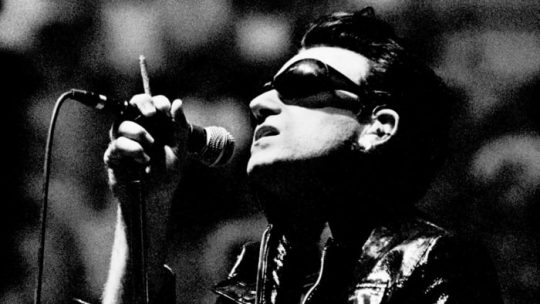
#6: “The Fly” (Achtung Baby)
Ladies and gentlemen, I present to you: the ballsiest move in rock music history.
Going straight from the AARP-friendly sound of Rattle and Hum directly into their sleazy, nihilistic masterpiece, “The Fly,” must have been a massive shock for U2′s fans in 1991. After all, the band did aptly describe Achtung Baby’s lead single as “the sound of four men chopping down The Joshua Tree.” And as far as burning your legacy to the ground goes, you can’t really do better than “The Fly.”
Bono is wonderfully hammy as the song’s titular character, a greaseball making a crank call from a payphone in Hell, spouting false nothings and seducing the listener, not unlike a Screwtape for the ‘90s. The way he switches between the breathy verses and his exaggerated dance-diva falsetto in the chorus is seamless.
But let’s not forget Edge’s contribution here: “The Fly” features his all-time best guitar solo. It goes down to the depths of the underworld and then contorts itself into a psychedelic, hypnotic kaleidoscope of sound. It’s truly breathtaking, and his sharp riff that repeats throughout really enhances the song’s dark tone.
“The Fly” might not have sold too well in the U.S. — clearly we didn’t like our U2 singles to be this snarky. And it’s never really had the same shelf life as Achtung’s more successful singles. But it’s still the pinnacle of the dark, sardonic vision U2 had for their incredible reinvention, and I wish all artists were willing to take risks this insane.
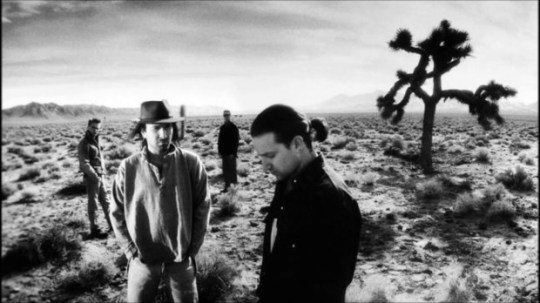
#5: “I Still Haven’t Found What I’m Looking For” (The Joshua Tree)
One of two #1 U.S. hits that U2 notched, “Still Haven’t Found” is one of those songs that feels like it was written centuries ago. Maybe it was even composed by a caveman. It’s such a simple song musically (in a good way), yet with a complex lyrical bent.
I love the way that “Still Haven’t Found” approaches Christianity. Too much contemporary Christian music seems to be overly positive and cheery — an outsider would get the impression that finding Jesus means life has no problems. Meanwhile, U2, who are famously Christian, don’t shy away from the hard truth: Finding faith doesn’t fix your problems.
Throughout the song, Bono aches and yearns for relief from his suffering, yet despite all of the divine things he’s seen and encountered, he still can’t find that satisfaction. There’s still something missing. As a Christian who sometimes struggles in his faith and can be alienated by certain religious peoples’ outward displays of perfection, it’s a relief for me to hear that others struggle in this way too.
All in all, it’s hard to believe that four guys from Ireland would create a gospel classic in the age of hair metal, but “Still Haven’t Found” is a timeless track that tackles tough emotions in a stirring way.

#4: “A Sort Of Homecoming” (The Unforgettable Fire)
Unforgettable Fire’s best song is its opening thesis. “A Sort Of Homecoming” features that oh-so Brian Eno white noise background throughout and, frankly, perfects it. The guitar, bass and some scattered synths all melt into a hazy soundscape that sounds like pure fog. All you have to do is throw on some tribal Larry Mullen Jr. drum licks and have Bono scream through the void, and you’ve got an ambient-rock classic on your hands.
There’s something so powerful about this song, even though I have absolutely no clue what it’s supposed to be about. Obviously, Bono is talking about some sort of long, trudging journey home, and “Homecoming” certainly sounds like a great road-trip soundtrack. But what makes it work is that looping, endless production and Bono’s piercing wails. “No spoken words, JUST A SCREAAAAAAAAAAM” might be when U2 cemented their legacy as a legendary stadium act. Of course, they never play this song live anymore, because it wasn’t a single, but I still think it would kill. Criminally underrated track.
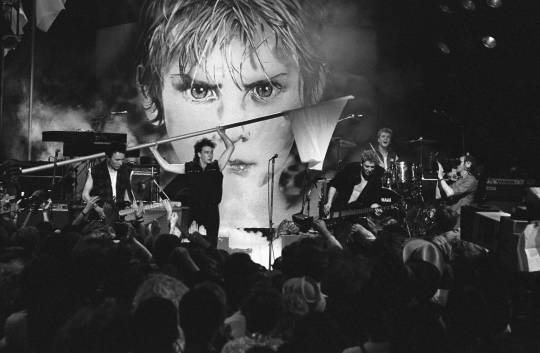
#3: “Sunday Bloody Sunday” (War)
This is the greatest drum beat in rock history. I will fight anyone who disagrees.
The gunshot-crack of the snare drum that incessantly pokes its way into “Sunday Bloody Sunday” is the perfect fit for this righteously angry, seething post-punk song. That snare drum military beat is the exact moment when the world realized that these Dublin kids were going to be around for a long, long time.
The definitive song about The Troubles (sorry, “Zombie,” you can take second place), “Sunday Bloody Sunday” is iconic for a reason. Bono declines taking any stance in the conflict accept the stance of ending the conflict itself. He could care less about one side or the other: All he sees is the bloody corpses littered throughout Northern Ireland. And he’s had enough.
The studio version and the 1983 Red Rocks recording (with the white flag) are the most iconic moments associated with “Sunday,” but I prefer the live version from the Rattle and Hum movie. It was recorded hours after an IRA bombing in Northern Ireland killed 11 people, and Bono loses all filter.
In a rant in the middle of the song, as the band provides a fierce backbeat, Bono exclaims: “I’ve had enough of Irish-Americans who haven’t been home in 20 or 30 years talk about ... the glory of the revolution, and the glory of dying for the revolution. FUCK THE REVOLUTION! They don’t talk about the glory of killing for the revolution.” A minute later, he’s repeatedly bleating, “NO MORE!” It’s a chilling moment, and I’d recommend that any U2 naysayer watch it.
"Sunday Bloody Sunday” is U2 in full fire-and-brimstone mode, and despite The Troubles thankfully ending years ago, the War track’s unbridled rage still provokes a nerve today.
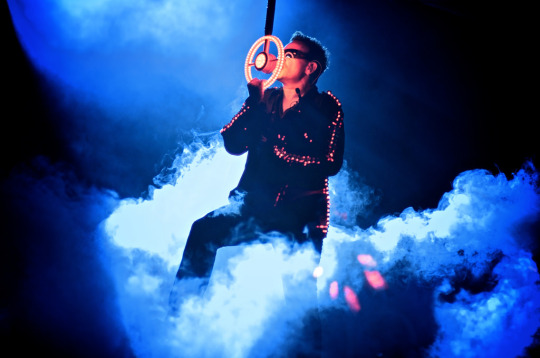
#2: “Ultra Violet (Light My Way)” (Achtung Baby)
I’ve gone on and on about how much I love the sleazy, dejected vibe of Achtung Baby in this list. ...but man, there’s something so powerful about that album’s exception to the rule. Out of all the trashy Euro jams and weepy breakup songs on that album, its best song, “Ultra Violet,” stands out for being a joyful, ecstatic expression of pure love.
Lots of Achtung focuses on The Edge’s divorce, so it’s refreshing to hear a five-and-a-half minute arena rock anthem about how much Bono absolutely worships his wife. And I mean that literally — he sounds totally desperate and over-his-head here, completely taken over by passion and dependency. In that final verse, when Bono takes his vocals up a scale and his voice constantly cracks, it’s a painfully powerful moment.
"Ultra Violet” is about love that’s so powerful that it’s no longer about attraction. It’s about unfiltered happiness and need. And despite the fact that it’s honestly a pretty simple song, its sheer power and optimism makes it my all-time favorite U2 deep cut. No question.
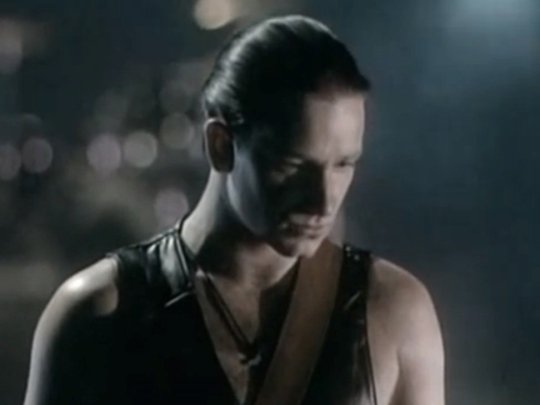
#1: “With Or Without You” (The Joshua Tree)
This song floored me the first time I heard it in middle school. It still floors me over a decade later. Based on its cross-generational iconic status (that strangely, I might have to thank Friends for), I’m sure it floors most of you too.
“With Or Without You” is the kind of song that will last forever, because not only does it have a timeless sound that connects with even the most staunch U2 hater, but also because it has possibly the greatest slow build in music history. It starts as a whisper at the beginning, and slowly, slowly, slowly dials up the volume. At one point you the band even teases you — you think it’s going to hit that big release, and nope! More tension.
Finally, over three minutes in, the drums kick into high gear and Bono lets loose his cannon of a voice into the night. The catharsis hits you like a sledgehammer right in the feelings. I’m not sure the words “OOHHH OHHHH OHHHH OHHH” have ever had more meaning. And just because U2 hasn’t spoiled us enough, they close out the song with a stunning coda that wordlessly expresses the song’s themes of yearning and conflicted passion.
Yes, Bono’s lyrics are top-notch here as well — this is the ultimate “is it about God or a girl?” song — and I do love his use of dark imagery to sell the sacrifices he’s made in the name of love. But that slow build is the stuff of dreams. Based on one five-minute song, there’s probably millions of bands across the world that formed (I can name at least one group that owes quite a bit to “With Or Without You”).
So the next time you groan about those old Irish dudes who forced some crappy late-career album onto your phone, do yourself a favor and listen to “With Or Without You.” Don’t pause it or skip to the chorus. Just play through and let the whirlwind of emotions hit you. And then you’ll see why U2 have earned their spot at the top of the world.
1 note
·
View note
Text
They probably were going to but had to cut it when Disney cut season 3
They just. Never explained Hooty’s deal, huh.
He’s the Owl and the House of the Owl House. He has a pair of Baba Yaga hut legs. He can detach himself and fit in a backpack. The series finale revealed that God has a Hooty in their eye. His first word was hoot. His second word was hoot hoot. I know nothing else about him.
#the owl house#i’m like. barely in this fandom#and i appreciate that they were forced to rush things for a finale#but they put a hooty in the titan’s eye and goddammit what does it mean#is he the worm that wriggled through the corpse of ymir and thus gained wisdom#is he just an intentionally oblique mystery#does he like. pay rent
9K notes
·
View notes
Text
#the owl house#i’m like. barely in this fandom#and i appreciate that they were forced to rush things for a finale#but they put a hooty in the titan’s eye and goddammit what does it mean#is he the worm that wriggled through the corpse of ymir and thus gained wisdom#is he just an intentionally oblique mystery#does he like. pay rent
They just. Never explained Hooty’s deal, huh.
He’s the Owl and the House of the Owl House. He has a pair of Baba Yaga hut legs. He can detach himself and fit in a backpack. The series finale revealed that God has a Hooty in their eye. His first word was hoot. His second word was hoot hoot. I know nothing else about him.
#I think he commits felony tax evasion just by breathing#because it's that kinda show#TOH#the owl house#hooty
9K notes
·
View notes
Text
#is he the worm that wriggled through the corpse of ymir and thus gained wisdom#is he just an intentionally oblique mystery#does he like. pay rent
They just. Never explained Hooty’s deal, huh.
He’s the Owl and the House of the Owl House. He has a pair of Baba Yaga hut legs. He can detach himself and fit in a backpack. The series finale revealed that God has a Hooty in their eye. His first word was hoot. His second word was hoot hoot. I know nothing else about him.
9K notes
·
View notes